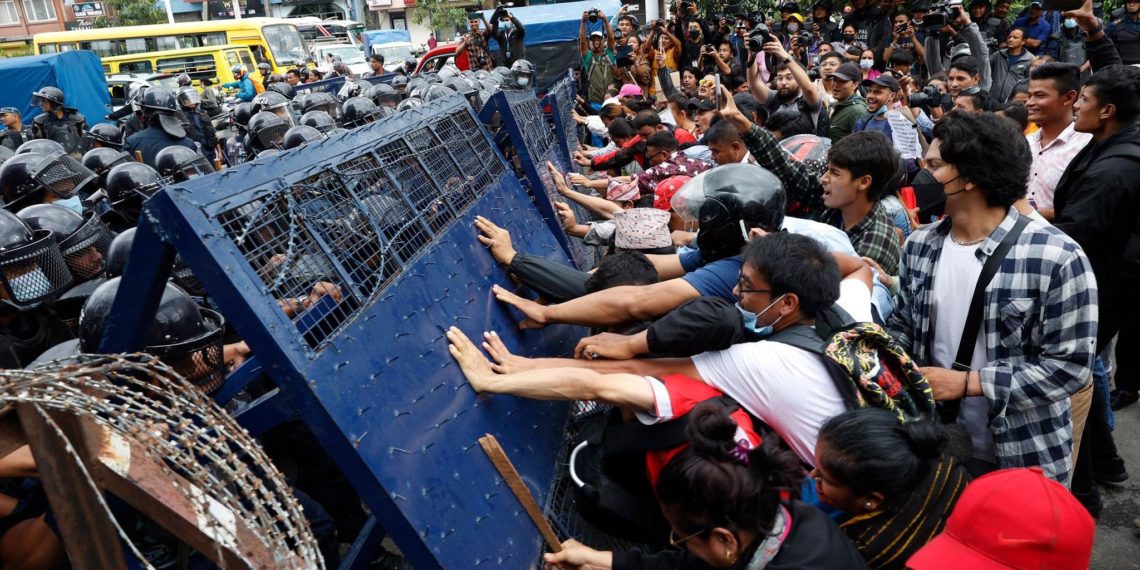By Anca Voinea
Members of Nepalese co-ops reached an agreement with the country’s government on 21 March, after weeks of protest. Protests have been called off after ministers agreed to take action to improve regulation of the cooperative sector
Organised by the National Campaign for the Protection of Cooperatives Depositors, the demonstration had brought together more than 280 fraud victims, demanding that co-ops be better regulated.
They had been demanding change for months, with a series of demonstrations outside the Department of Cooperatives in Kathmandu in August last year and February-March this year. The August protests had led to a series of government promises, including measures to return deposits parked in troubled co-ops, but co-op members took to the streets again this year claiming implementation has been too slow.
The victims suspended all the protests on 21 March after a series of new pledges from the government, including the immediate return of the fund of depositors. Other agreed measures include the audit of the accounts of troubled co-ops, strengthening the institutional capacity of co-op bodies and taking legal action against co-op managers, operators, and associated staff who commit offences. A Savings and Loan Security Fund and a Loan Information Center and Loan Recovery Tribunal will be established.
According to the Department of Cooperatives, Nepal is home to more than 32,000 co-ops with 7.3 million members and a combined share capital of Rs94bn (£558m), with Rs478bn (£2.8bn) in deposits and Rs426bn (£2.5bn) in loans. Seventeen of these co-ops, with deposits worth Rs13.14bn (£78m), have recently been described by the department as “troubled”. However, Nepalese press reports claim the figure could be as high as 500.
Recent cases include the arrest of Kedarnath Sharma, former chair of Shiva Shikhar Multipurpose Co-operative, Bhaktapur from Mumbai, India, for his alleged involvement in embezzling Rs 14bn from deposits of members. The country’s Central Bureau of Investigation (CIB) claims Sharma has taken his members’ money to set up businesses in India and Myanmar. He was also running Tulasi Cooperatives in Morang.
On 29 February, the Parbat District Court convicted two people of embezzling more than Rs110m from depositors of the Mata Pathibhara Cooperative in Kushma. The court ruled that the co-op’s former chair, Kishor Shrestha, and computer software developer, Pratiman Poudel, were guilty of misappropriating Rs111m worth of savings of depositors of the Kushma-based microfinance. Shrestha was also found guilty of facilitating the embezzlement of depositors’ savings at another Parbat co-op which was chaired by brother Balgopal Shrestha.
Another notorious case involved the Oriental Cooperative, whose manager was found to have embezzled Rs 10.84bn of his members’ money.
Local-level co-operatives are regulated by their municipality while co-ops active in more than one municipality in the same province are regulated by the provincial government.
Provincial co-operatives with annual transactions of over Rs250m are regulated by the Department of Cooperatives while those with transactions over Rs500m are regulated by Nepal Rastra Bank, with support from the Department.
Last October, the Nepal Rastra Bank (NRB) revised its guidelines for licensed banks, and financial institutions are now required to ensure the protection of deposits up to Rs500,000 (from 300,000 previously) for individual account holders in both savings and term deposit accounts through the Deposit and Credit Guarantee Fund. However, co-operatives are not covered by this provision.
Nepal Federation of Savings and Credit Coop Unions has been contacted for comment.

















































